Blog 5 Signs Your Pup Needs Doggy Daycare ASAP
Dog daycare can be very beneficial for puppies. Spending time at a doggy daycare develops social skills and minimizes hyperactivity and isolation anxiety. Most puppies benefit from having regular interaction with other smaller dogs.
But each dog is different. You’ll need to know the pros and cons when paying for pet care. The five main reasons dog daycare is beneficial include
- Social interaction.
- They are learning social skills.
- Regular exercise.
- Safe environment.
- You get a break.
Social Interaction
A dog not regularly exposed to other dogs playing off-leash can become antisocial. It may be aggressive toward other dogs, develop anxiety, or present reactivity. Dogs are naturally social. They crave and like contact with other dogs.
Consistent and early socialization is essential for your puppy’s healthy development. A rise in dog reactivity is due to restrictions on dog interaction with other dogs in a natural way. For a dog to be social, it needs consistent, positive experiences with canine friends.

Learning Social Skills
Proper exposure to other dogs allows your puppy to read them and avoid conflicts. A puppy that does not learn social skills ignores subtle signs and is forced into physical altercations.
Exercise
Pet owners know their puppy needs exercise but may not have the time to run the puppy enough exercise or cannot give them the intensity they crave. Unless a puppy gets at least 45 minutes of walking, you barely scratch the surface of needed exercise.
You cannot replicate the energy expended by two dogs playing together. Constant roughhousing in an outdoor area is an optimum way to provide the positive experience they desperately need.
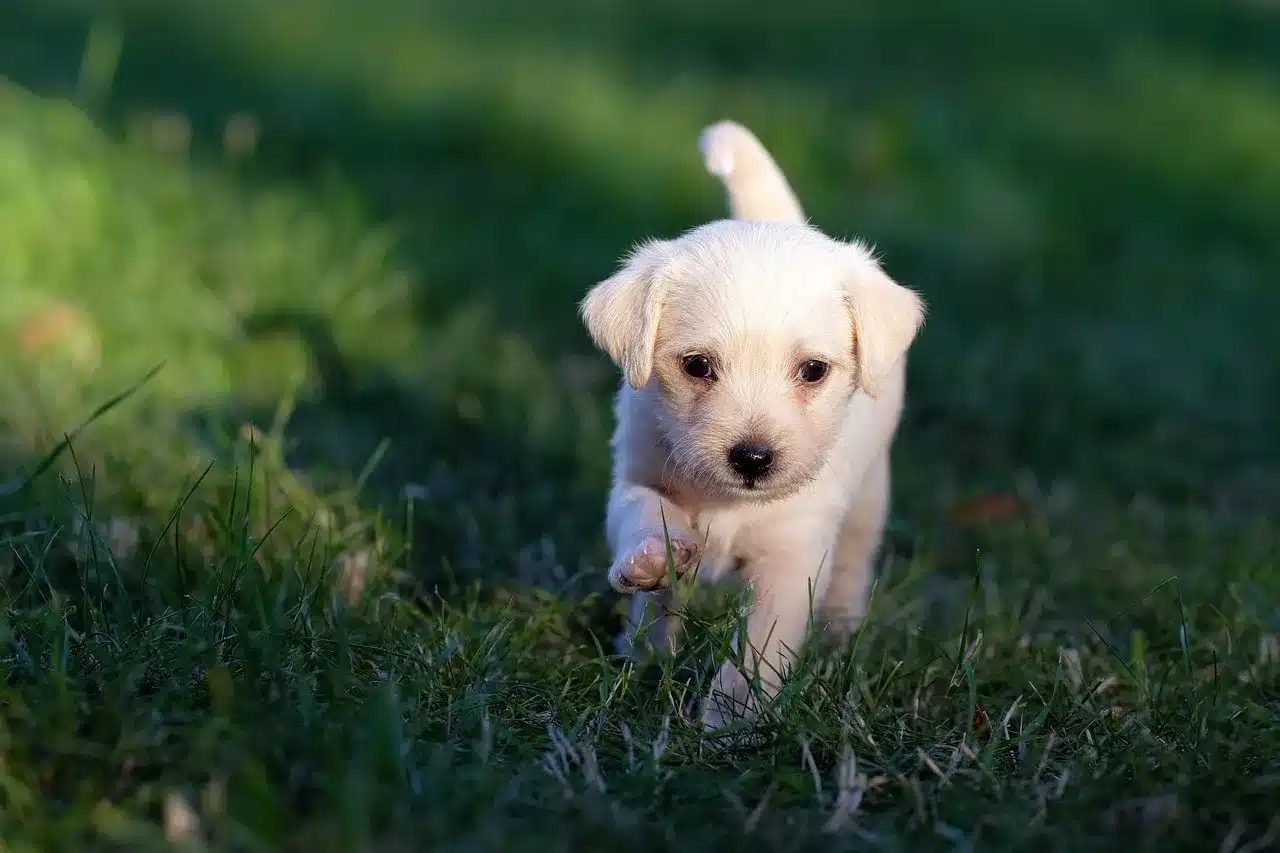
Safe Environment
Puppies get into things when left alone. A diligent doggy daycare staff prevents injuries from happening when you are not around. Injuries and accidents can happen anywhere. Having a carefully controlled environment and responsible supervision decreases the chance of your puppy getting hurt.
Very Important Paws will ensure your puppy gets the care and exercise needed.
Safety is a priority. There must be rules to keep pups safe. Most doggie daycares have similar guidelines. Rules vary depending on the facility. Rules you will likely encounter at most daycares include
- Age requirements.
- Vaccinations.
- Temperament tests.
- Parasite preventatives.
- Collar regulations.
- Attendance policies.
Age
Age requirements vary from one facility to the other. Nearly all dog daycares have age parameters. Some require puppies to be at least 12 weeks old before entering the program, and others do not allow puppies under six months old.
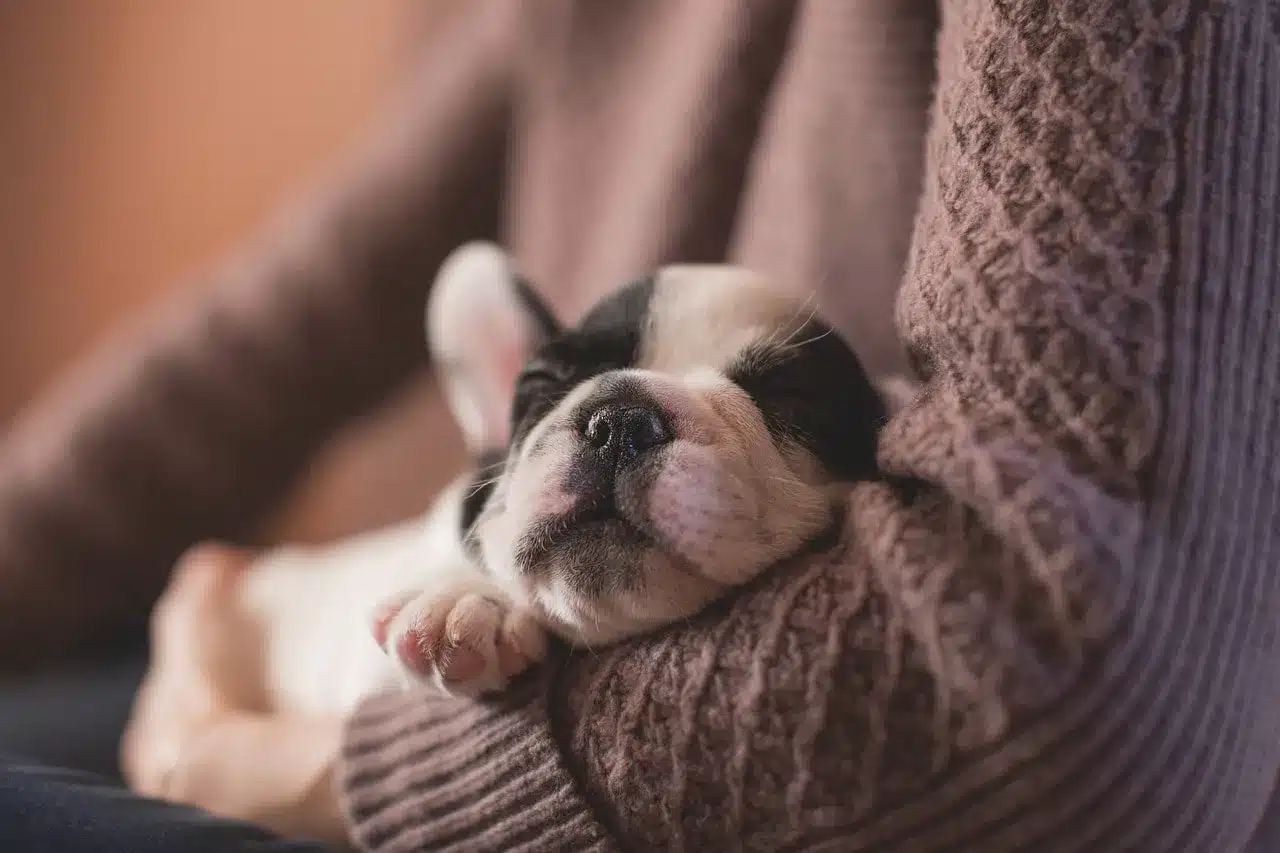
Vaccinations
A good daycare requires vaccinations for furry friends. Kennel cough and core vaccines are needed, and pet parents must have vet paperwork proving the puppy is up to date.
The core vaccines are the rabies vaccine, parvo vaccine, adenovirus vaccine, and distemper vaccine. Some dog daycares require additional non-core vaccines.
A diligent doggy daycare staff prevents injuries from happening when you are not around.
Do not take a puppy with contagious illnesses like canine influenza, ringworm, kennel cough, distemper, or pravio to dog daycare. A dog vaccinated against infectious diseases can still spread or contract the illness.
Most dog daycares ask pet parents to keep pets showing symptoms at home. Before returning to the program, a written statement from a vet declaring the puppy is healthy and not contagious is submitted.

Temperament Tests
Nearly all dog daycares require puppies to pass a temperament test. The test, which typically takes one to six hours, allows the staff to assess how puppies behave in a group environment. Some dog daycares charge for temperament tests.
Parasite Prevention
Because parasites spread quickly through a facility, a puppy must be on medications for fleas and ticks and have fecal exams. If parasites are found on a puppy, they are either sent home, or pet parents are charged for treatment services.
Collars
Most doggie daycare facilities ban using buckle, choke, martingale, or prong collars as they pose a risk to your puppy and others. When your puppy goes to doggy daycare, a snap-on, quick-release collar is suggested.
Attendance
Due to the high demand for dog daycare services, facilities often implement attendance policies. Dog daycares may have a minimum and maximum number of days per week dogs attend, and some require reservations.
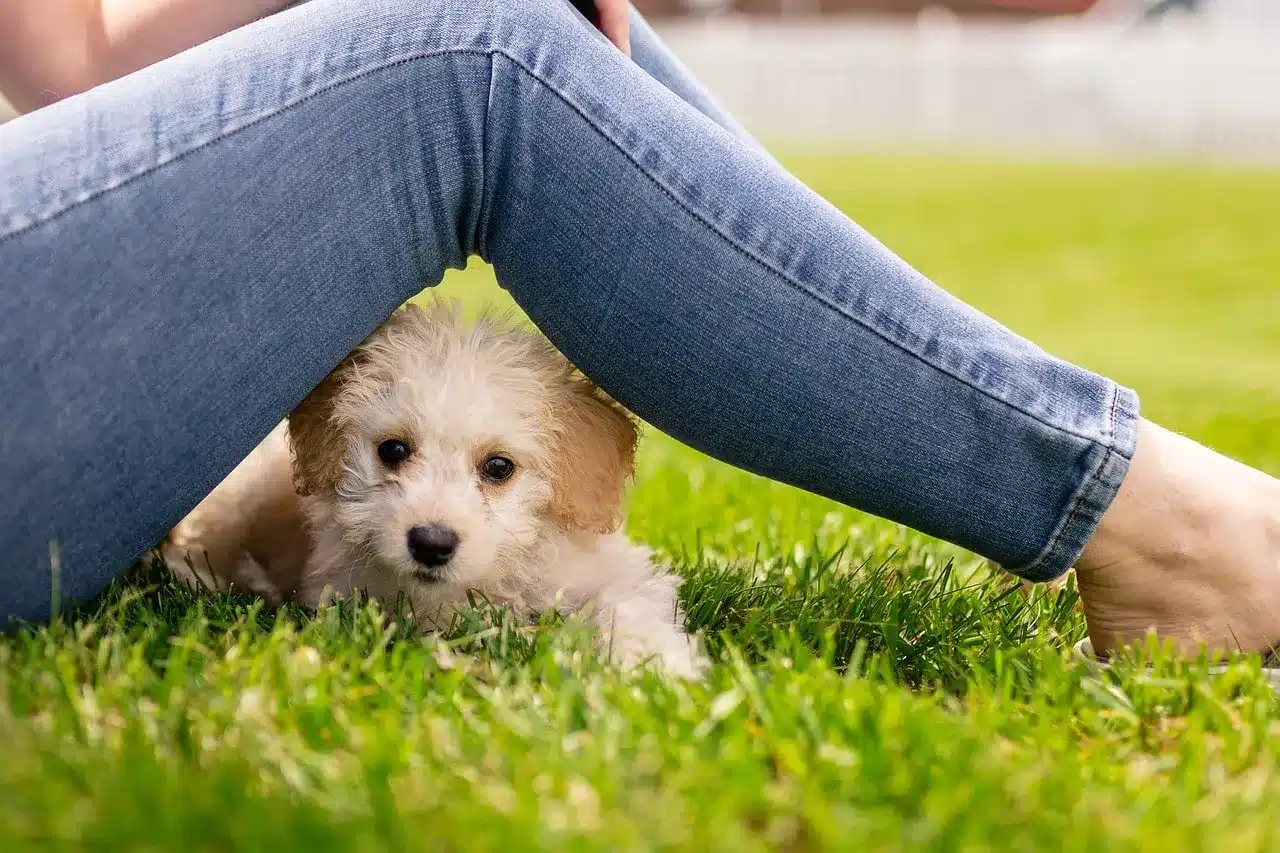
You Need a Break
Owning a puppy is similar to having a child. Another living thing depends on you for survival. It can be significantly exhausting to factor a puppy into a busy schedule. Sending a puppy to doggy daycare relieves you from the pressure of caring for the dog for a while.
You do not have to feel guilty that you are away; you can focus on yourself and other things you must do. Like sending a child to camp, the puppy is out of your hair and happily occupied. When they come home, they are content and drained of energy.
Dogs Suitable for Dog Daycare
Among the many dogs most suitable for dog daycares are:
- Young dogs.
- High-energy breeds.
- Dogs that are bred for specific jobs.
Puppies
Puppies are generally a good fit. Dog parks are a bit of a gamble. You assume every dog is friendly and healthy and every dog parent is responsible. The assumptions are not always the case. Every other dog may swarm your dog.
At a dog daycare like Very Important Paws, puppies are up to date on vaccinations and healthy. They receive care appropriate for their age. The dogs are temperament tested. They are friendly and supervised by a dog daycare staff member who ensures every puppy has fun and behaves.

High Energy Breeds
High-energy breeds, such as Jack Russells, Dalmations, German Shepherds, Pit Bulls, and Labradors, do not tire with a few minutes of tugging or walking. The nonstop action at a dog daycare satisfies their exercise needs and helps them behave at home.
Dogs Bred for a Specific Job
Dogs bred for a specific job need something to do, or they will feel unfulfilled and present behavioral issues. Dog daycare is an excellent way for them to do something constructive.
Dogs Not Suitable for Dog Daycare
A dog daycare setting is not the right environment for some puppies. It is not fit for:
- Very anxious puppies.
- Fearful adult dogs.
- Aggressive dog or dog-reactive.
Anxious Puppies
Most dogs are happy-go-lucky and have no problems among group play groups. If a puppy is uncomfortable around other puppies, proceed slowly or risk negative socialization.
Fearful Older Dogs
Like anxious puppies, an adult dog afraid of another dog is overwhelmed in a pack setting.
Aggression or Dog Reactive
If a puppy is grumpy around other dogs, there are better places to address the problem than an off-leash environment. It is best to find a local dog trainer service to come to your home to work with the puppy and eventually improve the situation. They can start by meeting one dog and seeing how the puppy handles more.
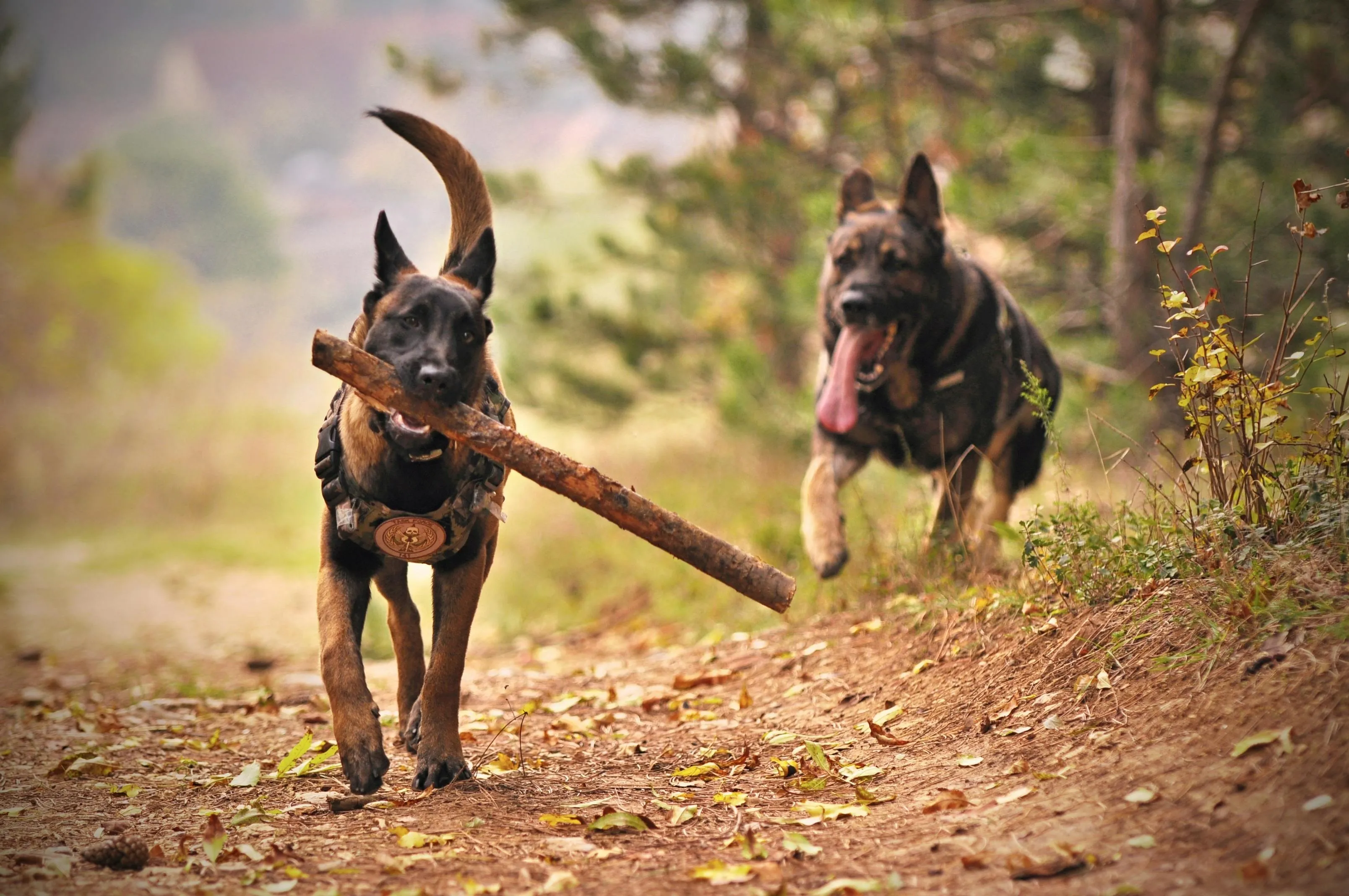
Preparing Your Puppy for Dog Daycare
Before the puppy’s first day, there is work to be done. It includes
- Socializing.
- Obedience training.
- House training.
Socialization
Undersocialization contributes to antisocial behavior and makes finding pet care difficult. When you bring a puppy home, start socializing with other dogs and humans. This socialization will prepare the puppy for dog daycare and daily life.
Dog Behavior Obedience Training
A puppy needs basic obedience training to shine in dog daycare. Mastering simple commands, such as ‘come,’ ‘down,’ ‘stay,’ and ‘sit,’ helps our puppy stay out of trouble and may prevent accidents.
Reliable recall helps dog daycare staff prevent escape attempts and remove a puppy from dangerous situations.
Make sure your puppy understands ‘no.’ Understanding boundaries is essential for a fun and safe dog daycare experience.
House Training
Some dog daycares require a puppy to bed housebroken before enrollment. Even if it is not required, a puppy should potty outside or work on it when applying for dog daycare. Successful house training makes life easier at home and decreases the workload of the dog daycare staff.
Benefits of Doggy Day Care
A puppy gains much from supervised and structured play in a daycare setting. Ways a puppy benefits include:
- Encouraging socialization.
- Helping a puppy ‘speak’ dog language.
- Preventing destructive behavior and accidents.
- Keeping a puppy active.
- Offering mental stimulation.
- Giving a puppy human interaction.
- Combating separation anxiety.
- Helping keep a pup safe.
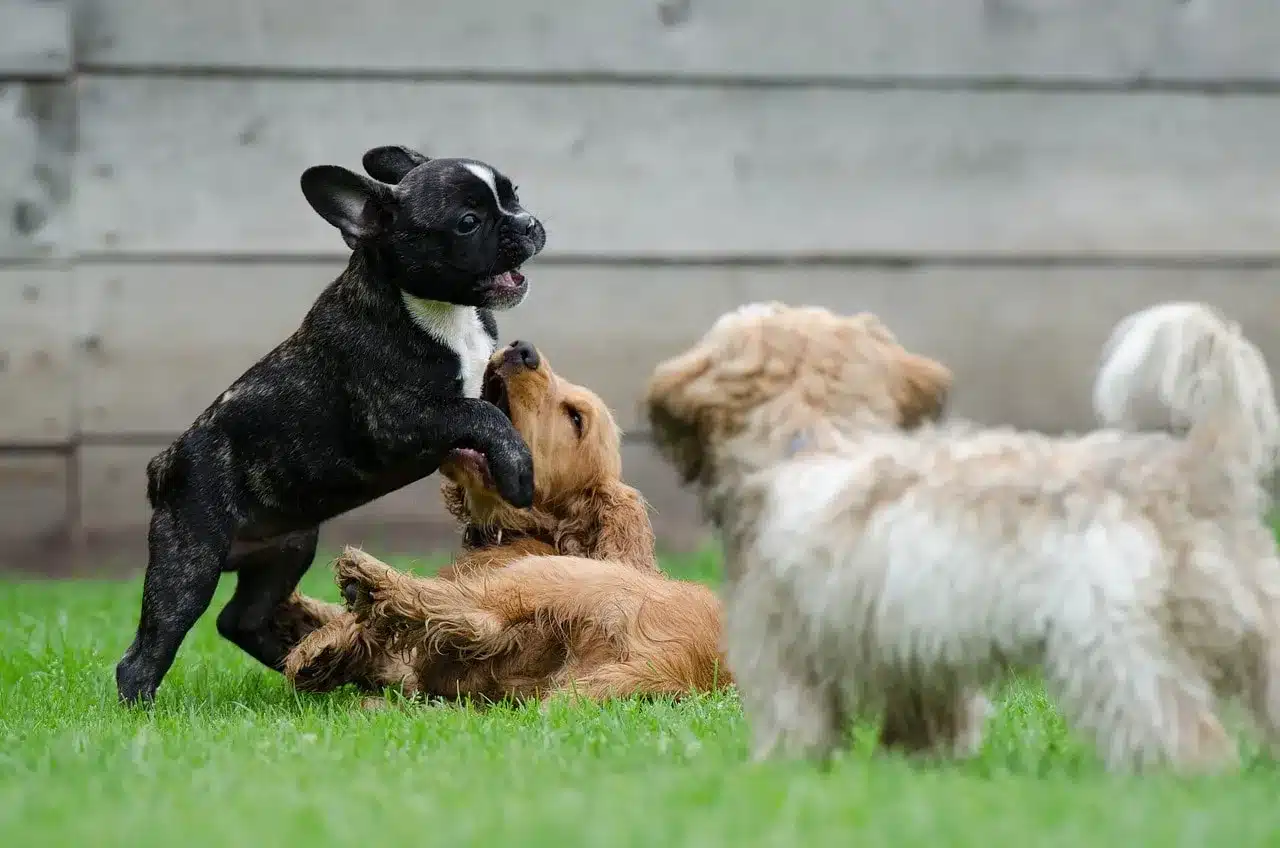
Socialization with Other Dogs
Early doggy daycare enrollment helps provide a pup with the socialization needed to become a well-adjusted pack member. Pups with inadequate socialization or limited exposure to other dogs and people tend to develop aversions or fear and have behavioral problems.
A young dog attending doggy daycare is less apt to develop these tendencies. Large and small dogs are assigned to a play area for dogs of similar size.
Understanding Dog Body Language
Understanding dog ‘language’ is vital to dog training and socialization. Social skills lessons are essential. They permit a pup to understand boundaries and may prevent conflicts. Seeing other dogs’ behavior teaches a pup how to react in similar situations.
Destructive Behavior and Accidents
A young dog gets chew-happy when left alone at home. Doggy daycare ensures you do not come home to shredded furniture or shoes and prevents in-home accidents.
Keeping Active
Staying at home all day causes boredom and can lead to depression, separation anxiety, and destructive behavior. The right doggy daycare provides young puppies with mental stimulation through group play equipment.
Mental Stimulation
Puppies require a lot of playtime and exercise. Doggy daycares provide play equipment and training. Regular physical exercise thwarts unwanted behaviors such as chewing and jumping, helps with digestion, and builds muscle mass.
Human Interaction
Because of work and other obligations, pet parents cannot be around to play with their puppies 24/7. Doggy daycare is not a substitute for companionship but provides the affection and human attention puppies need to thrive.
Separation Anxiety
Owners of dogs who have severe separation anxiety dread coming home in anticipation of destroyed stuff to pick up or accidents to clean. Doggy daycare helps with separation anxiety and its aftermath in two ways.
It takes puppies out of the home environment, so you do not have to worry about coming home to a mess or accident. Group play areas distract puppies from their loved ones and keep them busy. Very Important Paws provides all of the dog daycare services mentioned above.
Contact Very Important Paws today in Palm Beach for all your dog boarding, hotel, daycare, grooming, and training needs.

